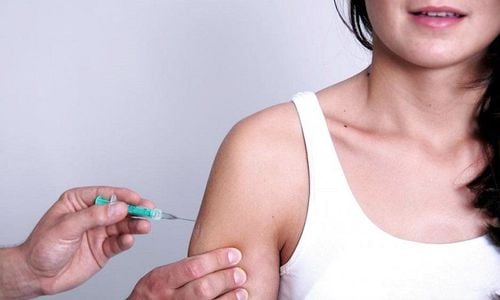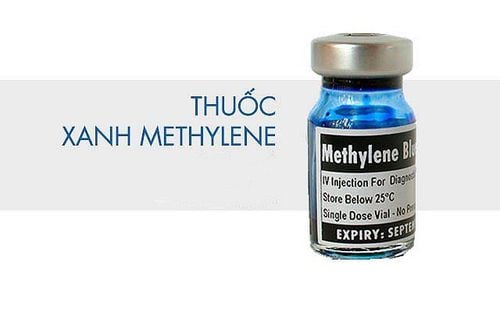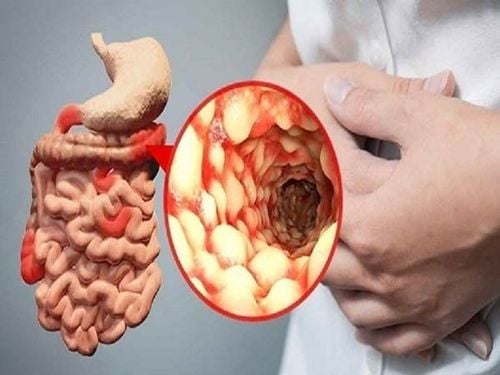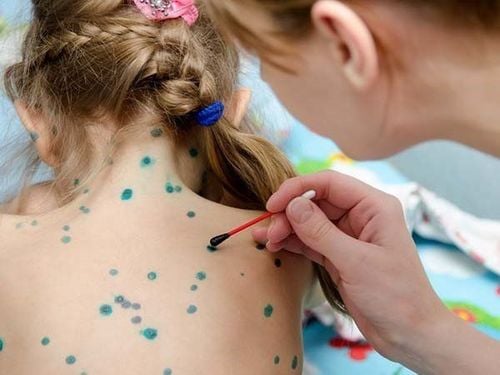This is an automatically translated article.
The article was professionally consulted with Specialist Doctor I Dang Thi Ngoc Chuong - Pediatrician - Pediatrics - Neonatal Department, Vinmec Central Park International General Hospital.Chickenpox in infants is relatively rare, but it can still be caused by birth or by infection from another person. When a child has chickenpox for any reason, the family also needs knowledge in the treatment and prevention of the disease for the child.
1. Causes of children getting chickenpox
Congenital factors: Congenital chickenpox is a phenomenon in which a child gets chickenpox after being born even though he has not been exposed to any source of infection. The reason why the baby is born with chickenpox may be because the mother got chickenpox during pregnancy. Especially in the early stages of pregnancy, if the mother has chickenpox, it can seriously affect the fetus such as causing miscarriage, cerebral palsy,... Due to infection: Similar to adults , infants can also get chickenpox from exposure to the pathogen through skin contact and inhalation. Therefore, if the mother has chickenpox after giving birth, it is entirely possible to pass it on to the baby.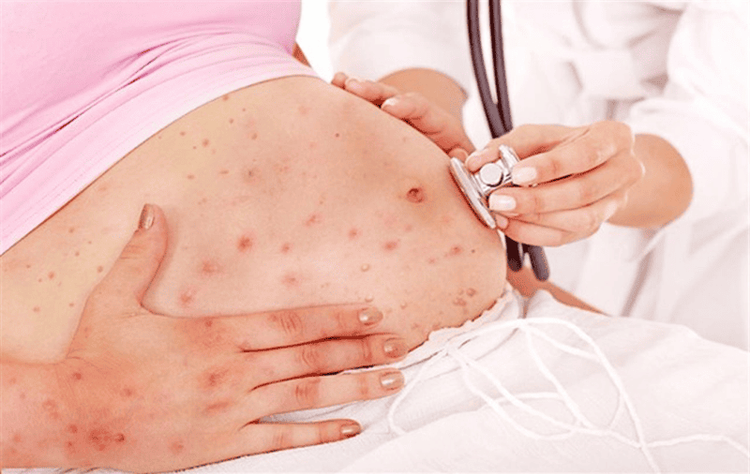
2. Is chickenpox dangerous?
Children with chickenpox, if left untreated or left untreated, are at risk for health problems such as superinfection and, more importantly, death. If a child has a superinfected chickenpox, the blisters will be deep and difficult to treat, the risk of leaving large scars is very high. Although the incidence of neonatal varicella encephalitis is relatively low, this risk cannot be ruled out.For children with encephalitis caused by chickenpox, there will be manifestations such as high fever, convulsions, coma, eyeball fibrillation and possibly death without timely intervention. In addition, chickenpox is also the cause of health problems for babies such as pneumonia, hepatitis, otitis externa, laryngitis, retinitis, etc...
3. Developmental stage of chickenpox
Onset stage: The baby begins to show symptoms such as fever, poor feeding, fussiness and may start to develop blisters. Developmental stage: The body appears blisters in some areas of the body and then grows to the whole body. The blisters usually appear within 12-24 hours of the onset of the disease. If these blisters are not infected, they will dry out and peel off on their own within 4-10 days.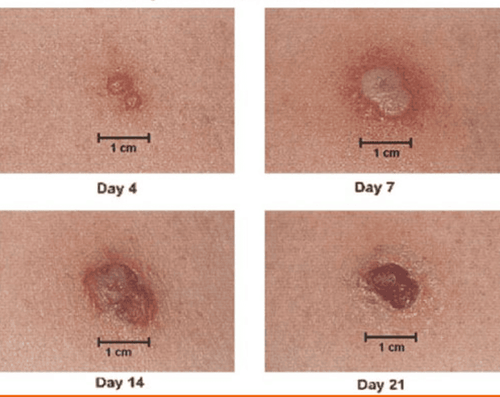
4. How to handle when babies have chickenpox
Isolation: One of the things to do when a child has chickenpox is to isolate the child from others to avoid spreading the disease. Do not share personal items such as towels, dishes, etc.Daily hygiene for children: When having chickenpox, children may feel itchy and scratch, so parents should wear gloves and cut baby's nails so as not to affect the chickenpox nodules. When wiping the baby, it is necessary to use warm water and a soft cotton towel, gently wipe to avoid breaking the chickenpox nodules.
Ensure nutrition: Maintain a nutritious diet and pay attention to adding water and vitamins for children. The traditional view of abstaining from water and wind when a child has chickenpox is incorrect, so parents do not need to apply this measure but must pay special attention to keeping the child's hygiene.
Timely visit to a doctor: When a child shows signs of illness, parents need to take the child to a medical facility for examination and treatment. Antipyretics may be used if the child has a high fever. In addition, the doctor may prescribe more topical medications and antibiotics to prevent superinfection. It should be noted that the use of drugs must be prescribed by a doctor and depends on each child. Parents should not self-medicate, it will negatively affect the health of the baby. During the treatment period, parents need to pay attention to the child's symptoms, if the baby shows signs such as high fever, broken and watery chickenpox spots, they must take the child to see a doctor for advice. and provide additional information for child care.
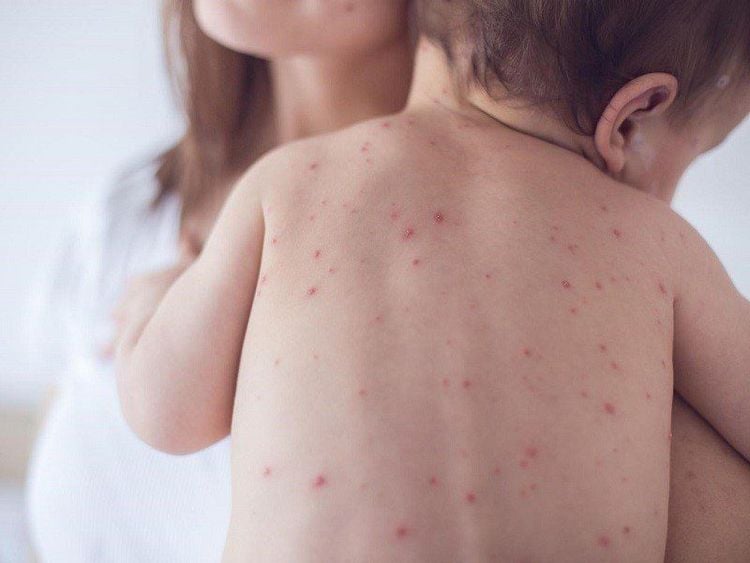
5. Treatment of chickenpox
Chickenpox is an infectious disease caused by a virus. The disease starts suddenly with symptoms such as fever, blisters on the body, poor feeding... When the blisters are full of the body, the signs of fever will be reduced, the blisters will also dry. gradually, scabs and falls off leaving only faint scars. However, if these blisters become infected or superinfected, it will cause pustules in those blisters, and will penetrate deep into the dermis and the risk of leaving deep and large scars is high.Treatment of chickenpox for children can use topical drugs such as silver gel. This is a topical drug extracted from nature with the composition of nanosheets, with high antibacterial and antiviral properties. It has the effect of breaking up cell plaques and participating in the destruction of bacteria and viruses, in addition, it also works to heal wounds quickly and is safe for children. To avoid superinfection of acne spots, the family should use su silver gel for babies as soon as the blisters have not been superinfected for the best results. However, it is necessary and worth noting to consult a doctor before applying any treatment to a child.
Infants with chickenpox need to be detected and treated early and properly to avoid possible complications for the child. However, proactively preventing diseases for children by vaccinating children and women who intend to become pregnant is important for children and mothers to have a healthy life.
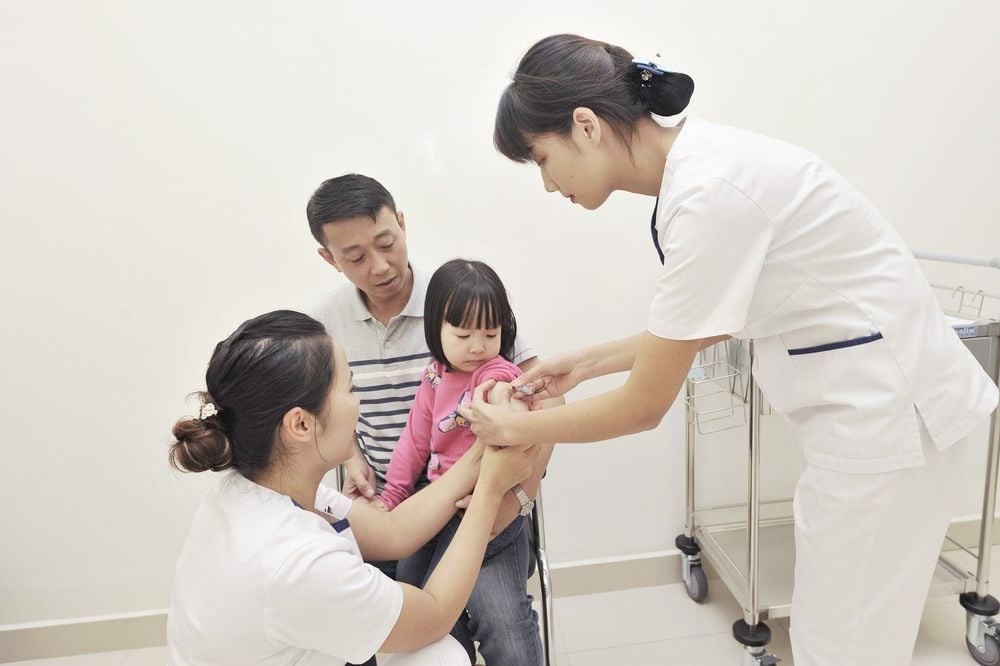
Children will be examined by pediatricians - vaccines, fully screened for physical and health problems, advised on preventive vaccines and injection regimens, how to monitor and care Before vaccination, children are vaccinated according to the latest recommendations of the Ministry of Health & World Health Organization to ensure the best effectiveness and safety for children.
A team of experienced and professional pediatric doctors and nurses, understand children's psychology and apply effective pain relief methods for children during the vaccination process.
100% of vaccinated children are monitored 30 minutes after vaccination and reassessed before leaving.
Be monitored before, during and after vaccination at Vinmec Health System and always have an emergency team ready to coordinate with the vaccination room to handle cases of anaphylaxis, respiratory failure - circulatory arrest, Ensure timely and correct handling when incidents occur.
Vaccination room is cool, with a play area, helping children feel comfortable as if they are walking and have a good mentality before and after vaccination.
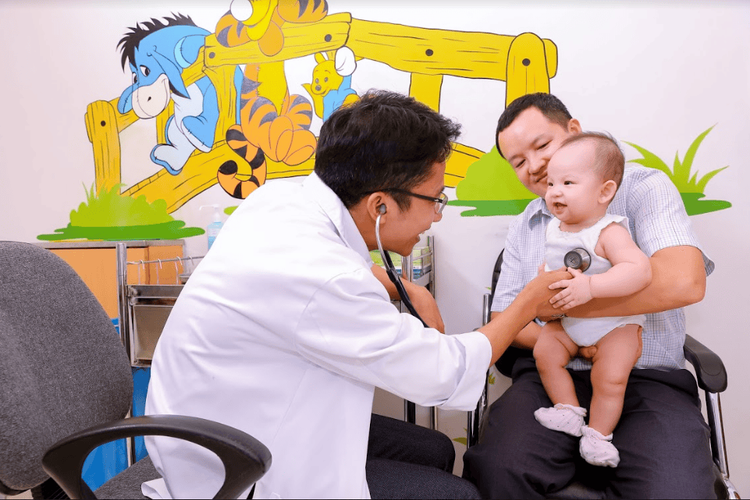
Parents will receive a reminder message before the vaccination date and their child's vaccination information will be synchronized with the National Immunization Information System.
Please dial HOTLINE for more information or register for an appointment HERE. Download MyVinmec app to make appointments faster and to manage your bookings easily.





